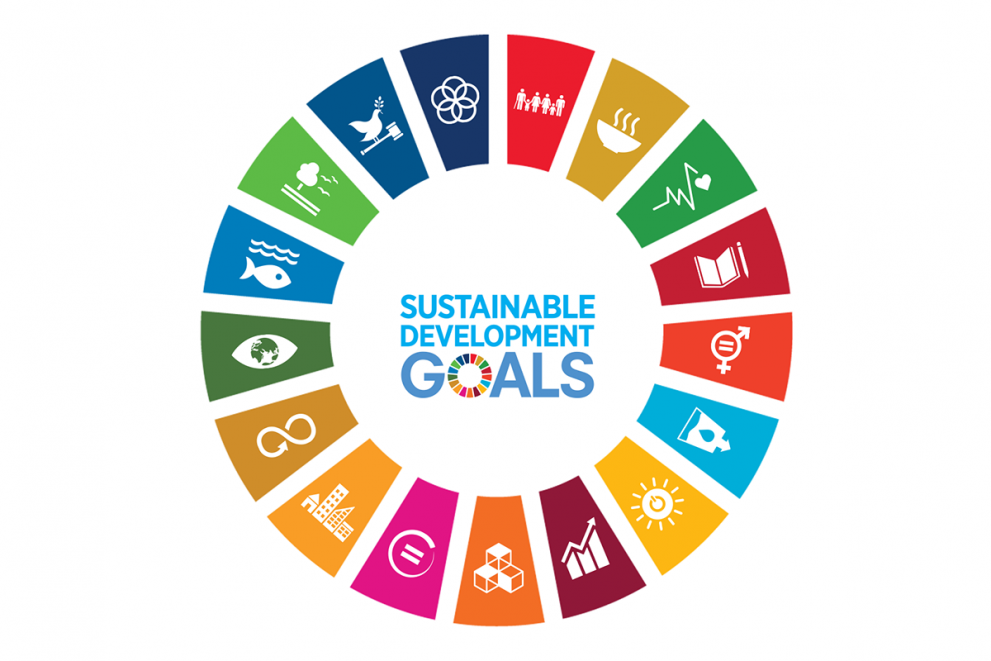Global goals will not be delivered without decisive political leadership
Parliaments and the last mile of the SDGs
July 31, 2025

Parliamentary mandates span the full breadth of the SDGs, from climate to education and poverty, and are uniquely placed to ensure future generations are not sidelined by short-term thinking. .
As the world enters the decisive final stretch of the 2030 Agenda, the question is no longer what was promised but whether those promises will be delivered in ways that tangibly improve people’s lives. Parliaments are pivotal to this effort. They translate global goals into national action by legislating, overseeing implementation, and representing people’s voices. In doing so, they uphold public trust and reinforce the democratic legitimacy that sustainable development and multilateral cooperation depend on. When parliaments deliver, democracy and multilateralism are strengthened.
A dangerous gridlock and a trust crisis
Today, only 35 percent of Sustainable Development Goals (SDGs) targets show adequate progress, while 18 percent have regressed. UNDP’s Human Development Report describes a “dangerous gridlock” of democratic erosion, rising polarization, and stalled progress. UNDP’s recent Development at Risk report echoes the warning that trust and development rise or fall together. When people lose faith in institutions, they resist reforms, disengage, and retreat from collective solutions. This erodes the political capital needed to move development forward.
Technology, while full of promise, adds new pressures. Artificial intelligence (AI) and other fast-evolving tools are widening disparities in countries’ ability to deliver inclusive development. Without public oversight and clear governance, these risk deepening inequality and weakening services.
Parliamentary engagement
First, despite setbacks, there is evidence that determined action delivers results. Since 2015, extreme poverty has declined. More than half the world’s population is now covered by at least one form of social protection. Maternal and child mortality rates have fallen. While results occur across all political systems, evidence shows that democracies with strong parliamentary oversight are significantly more likely to fare better in public service delivery, gender equality, education, and climate action. When democratic institutions deliver visible, tangible results, they also help restore public trust and demonstrate that inclusive governance can improve lives.
Many parliaments, with UNDP’s support, have taken steps to ensure they are equipped to play this role. They are scrutinizing laws, shaping national development plans and tracking spending. Pakistan is setting up a National Parliamentary Taskforce on SDGs to coordinate efforts and keep development goals high on the agenda. In Fiji, the SDGs are mainstreamed across all parliamentary committees, helping ensure regular scrutiny of government action in every sector. In Angola, gender-sensitive budgeting was institutionalized in national procedures, leading to an increase in allocations for women’s empowerment and a deeper scrutiny of gender equality objectives. These are not side projects, they are structural shifts that help ensure that progress on development goals is not lost between global agreements and national action.
Second, parliaments are uniquely placed to safeguard development goals as long-term, holistic, and intergenerational. Their mandate spans the full breadth of the SDGs, from climate to education, and allows them to weigh trade-offs, promote coherence, and ensure future generations are not sidelined by short-term thinking.
UNDP supports 1 in 3 parliaments to become more inclusive, future-ready, and effective. In Uruguay, a cross-party Futures Commission is embedding long-term thinking in policy debate and lawmaking. In Armenia, the National Assembly’s Climate Agenda Task Force improves evidence-based decision-making and facilitates cross-sector dialogue on the climate emergency. In Senegal, the National Assembly has initiated discussions on post-legislative scrutiny related to plastic pollution, an issue critical to environmental justice. In Southeast Asia, the Regional Youth Parliament on Climate Action brings together young MPs and activists to co-shape greener, more inclusive societies. Platforms like EKOTA in Timor-Leste use AI-driven, multilingual tools to connect thousands of youth directly to MPs, ensuring their voices influence real decisions. And through the new Expert Group on Parliamentary Engagement in Digital Policy, UNDP is helping parliaments develop the knowledge, tools, and networks they need to lead on frontier issues like AI governance, data rights, and cybersecurity.
Third, parliaments are essential to restoring democratic legitimacy to multilateralism, especially when global cooperation is both urgently needed and under pressure. No country can solve climate change, pandemics, or economic crises alone. And people want their governments to do more. The UNDP-Oxford People’s Climate Vote, covering 1.2 million people in 50 countries, offers striking evidence: 86 percent want their governments to cooperate more on climate, and 85 percent support richer countries helping poorer ones respond to the crisis.
Parliaments turn this expectation into action. They give multilateral commitments political traction, legal force, and democratic visibility. As global decisions increasingly shape national realities, from climate to trade or health, parliaments are not just implementers; they are the link between international cooperation and public consent. Without them, multilateralism risks becoming distant and technocratic—vulnerable to backlash and difficult to sustain.
Restoring trust in democracy and in global cooperation
The SDGs will not be delivered without decisive political leadership and parliaments have a pivotal role to play. They can drive results by embedding SDGs in their processes, strengthening oversight of global commitments, and building new models of intergenerational inclusion. But to do so, they need the right tools, resources, and partnerships.
Parliaments can move the SDGs from aspiration to action. And in doing so, they help restore public confidence in democracy and multilateralism at the time when it matters most.

 Locations
Locations





